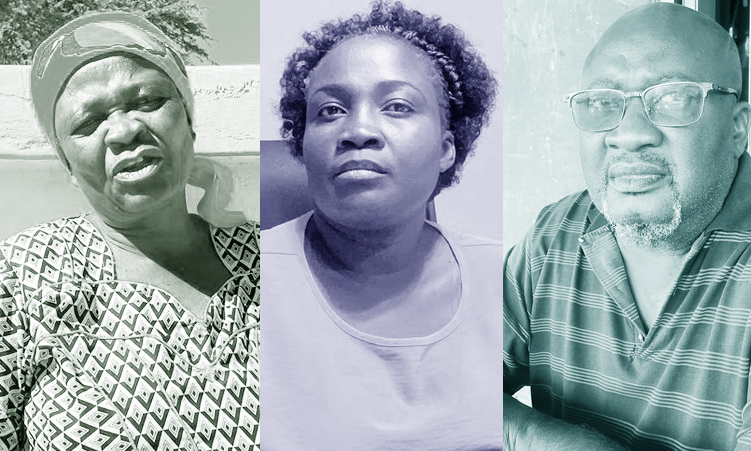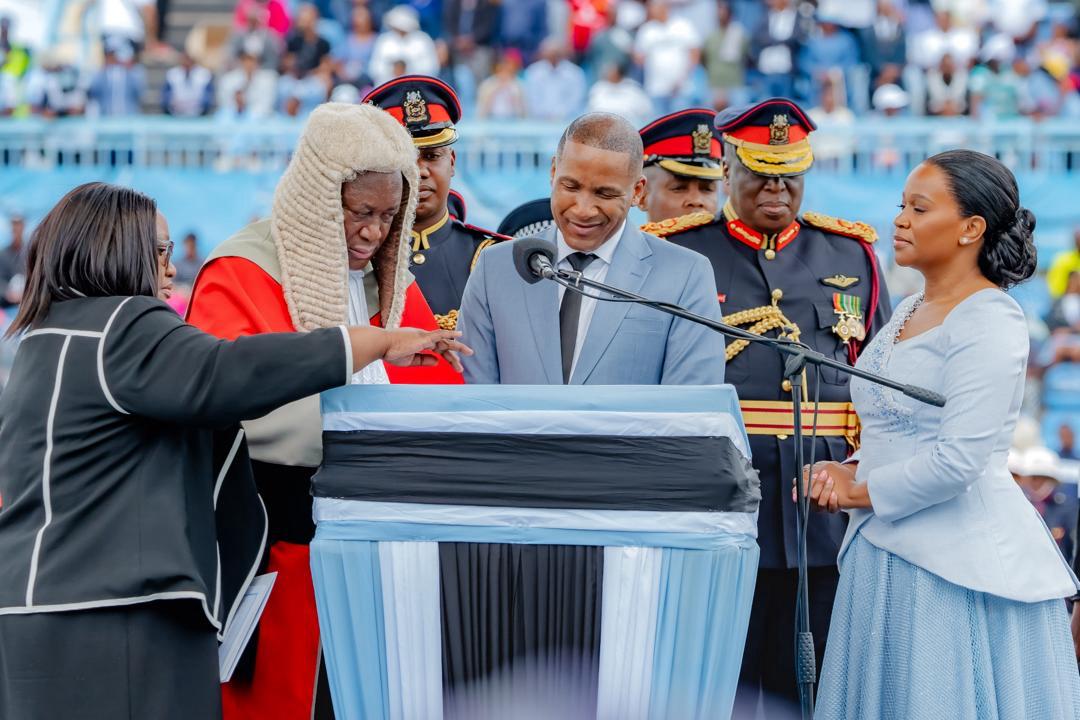Russian uranium job promises vs poisoned water
Deep in the Omaheke region, a Russian company promises hundreds of jobs with a new uranium mine, amid fears it could poison Namibia’s largest water basin, devastate farmland and cause a health catastrophe.
Uranium One is 100% owned by Russian state-owned nuclear firm Rosatom.
The Namibian government has denied the company permits to proceed over worries that the mine could poison the Stampriet Artesian Basin, which expands into South Africa and Botswana.
Uranium One has long claimed that red flags from the public were filled with “generalisations, wrong assumptions and slanderous false accusations”.
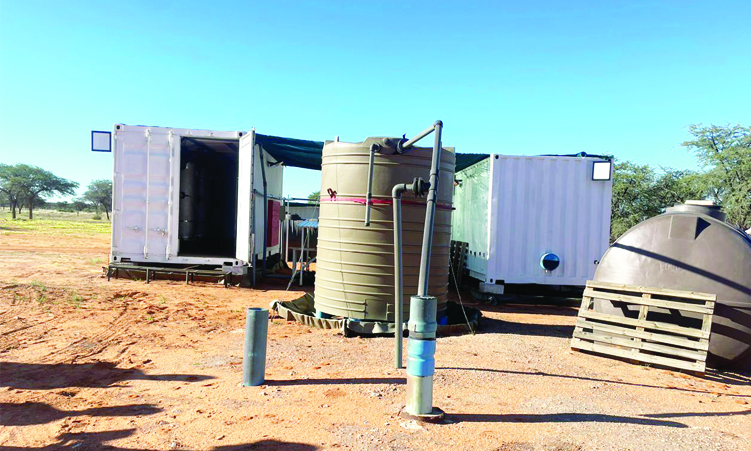
ENVIRONMENTAL CONCERNS
At issue is the type of mining proposed, a process called in-situ recovery or leach mining, which involves drilling boreholes, dissolving the uranium in water and then pumping the liquid back to the surface.
The company has found 75 000 tonnes of uranium after completing only half of the exploration work, Uranium One engineer, Aldo Hengari told The Namibian.
“If we are granted the water permit, we will employ 600 to 800 Namibians and increase the gross domestic product by 1 to 2% should we reach the mining operations stage,” he said.
The project, which has invested N$900 million, needs the agriculture ministry to grant a water permit to start mining with a pilot test plant and to finish the exploration drilling.
However, they now face stiff resistance from the community over the risks.
“We are not against the government or investment but we are against the health risks that this mining will bring,” said environmental activist and Aminuis traditional leader Freddy Koujo.
“The government must look after our health and protect us. They must not tell us to approve something that we do not have knowledge about.”
He said Omaheke is too valuable as farmland to risk contaminating the water.
“The company needs to prove to us and convince us because the method is a risk to our underground water that we depend on. In this situation, the government must look after its people. It’s their responsibility.”
GEOLOGIST CONCERNS
Retired underground water geologist Roy Miller from the Stampriet Aquifer Uranium Mining Association (Sauma) has long questioned the leaching process.
“Sauma is not against the mine. The leach solution in such a mine contains dangerous concentrations of dissolved uranium far above the World Health Organisation (WHO) safe-water drinking guideline.
“Namibia is looking promising from a mining point of view but what is more important than all of that is what you have to drink,” he said.
In August 2022, Miller told Omaheke governor Pio Nganate the whole area depends on the high-quality groundwater for survival.
“The water table in the basin is so high that the uranium cannot be mined by conventional open-pit or underground mines,” he said.
It’s not just water that gets pumped into the borehole. It’s rather a leach solution of groundwater and sulphuric acid, similar to battery acid, he added.
This has heightened concerns among farmers like Kumatuu Uandara, who is also a member of the Ovaherero Traditional Authority in Aminuis.
“In Aminuis, we have more than five to six traditional authorities and many are opposed to in-situ leach mining.”
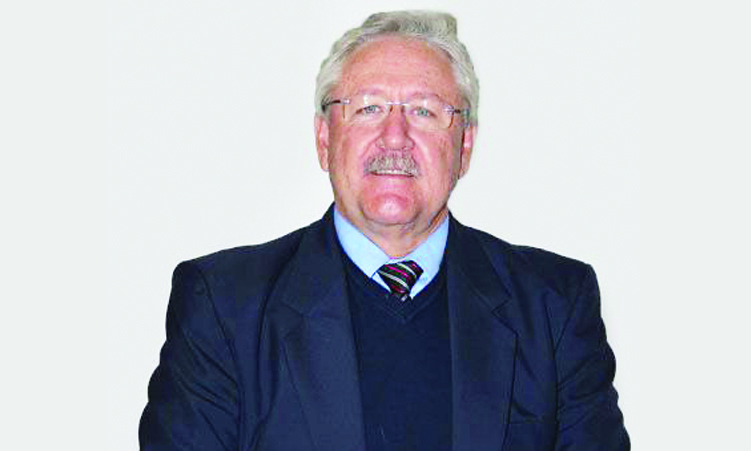
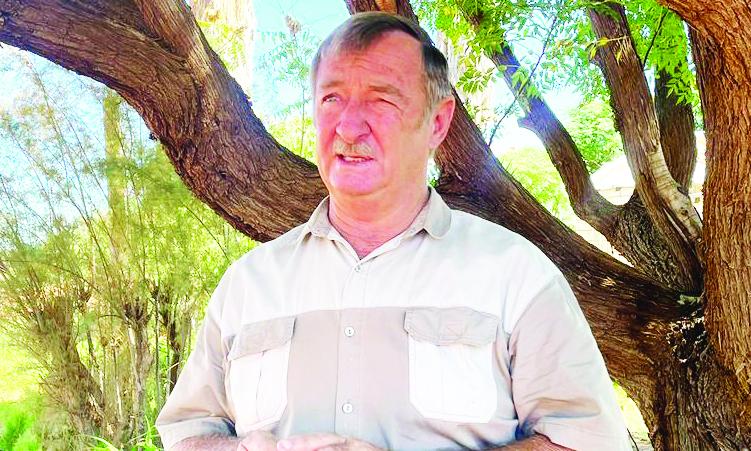
RUSSIA’S OPPOSITION
Documents seen by The Namibian show that Uranium One tried to hold several meetings with traditional leaders at Aminuis.
Uranium One spokesperson Riaan van Rooyen, in a statement, said Miller’s presentation contained a number of false statements.
“It should also be noted that Miller is a respected geologist but not an expert in in-situ recovery mining, neither of radionuclides in water,” Van Rooyen said.
“There are large numbers of community members who are positive towards the mine and who welcome the prosperity and other benefits the endeavour will bring to the communities in the area.”
He further said radioactive minerals can get into the water supply naturally.
“The uranium deposits in the sandstone in the aquifer led to natural contamination because of decay. Uranium One has done preliminary water analysis studies and the results have shown that there are instances where the water extracted contains radionuclides from the Auob 3 aquifer that is way above WHO’s standards.”
FARMERS’ SUPPORT
In the nearby village of Leornadville, local authorities support the mine.
Francois van Schalkwyk, a farmer for 40 years, owns 7 000 hectares of land and 1 000 livestock. He has everything to lose if the water becomes contaminated. He believes the in-situ recovery method will work.
“The Russians must convince the farmers that the method is going to work. In the end, the government still needs to decide. The water can be contaminated, that is possible. But you have to be very sure that they do it right and there is no contamination.
“I am convinced enough that this method will definitely work. I don’t see a problem in their method,” he said.
For some in the community, the prospect of jobs outweighs the risks.
“We are scared about the water contamination but if you look at it, we are a marginalised community,” said Leonardville resident Lishomwa Impo.
“If the company promises us that they will not contaminate our water, we will not have a problem as we want jobs for our people, we are very poor and many of us cannot afford a meal.”
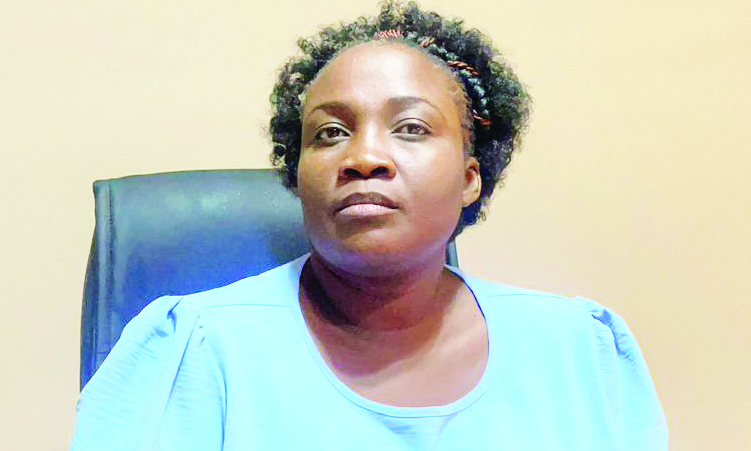
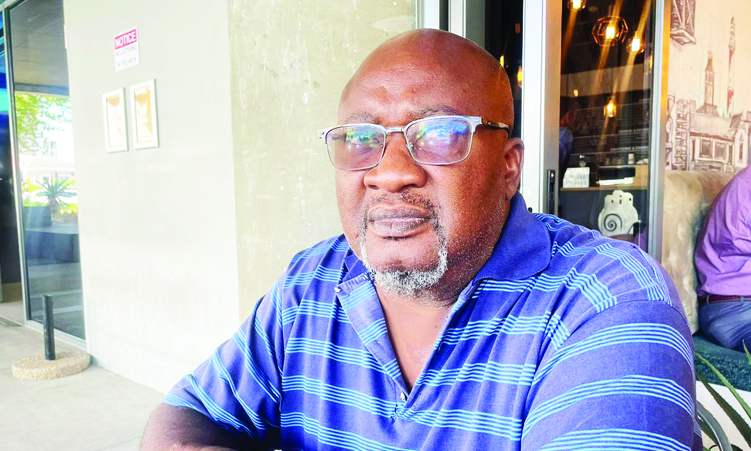
‘NOT SCARED’
Leonardville traditional leader Wilhelmina Witbooi (65) told The Namibian the community supports the mine.
“Uranium One was sent to Leonardville by God to change our living conditions. We know that there will be a lot of job opportunities created in the area.
“That is why we want the government to finish the contract because it is us who are suffering, not the government.”
She urged the government to approve the water permit.
“The problem is the Aminuis constituency is making decisions on our behalf and we do not have a say in this matter.”
STILL NO WATER PERMIT
The project started in 2012 but was halted in 2021 when agriculture, water and land reform minister Calle Schlettwein refused to grant the company a water permit.
Hengari said the company wants to open a test plant as a pilot project.
“If we do the test, we will have a full indication of how the whole test is going to impact the environment and also a feasibility study to see if it is economically viable for us to mine the uranium.”
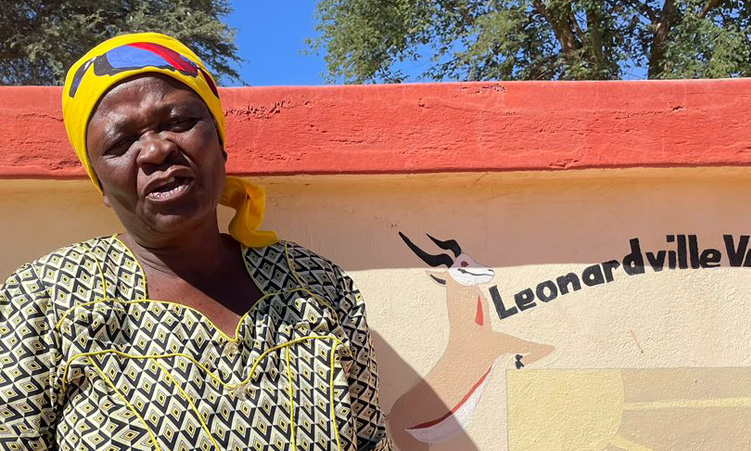
PROTEST UNDERWAY
Leonardville mayor Petra Salomi Witbooi believes the mine will benefit the “poor and hungry” community.
“We are already victims of poverty, people are unemployed. They cannot even get resettlement farms. We believe this mining project will have a huge impact on the community,” she said.
MINISTER’S RESPONSE
Schlettwein said the ministry had sought advice from Unesco and the International Atomic Energy Agency, which recommended further geological studies.
Schlettwein said the drilling permits contained conditions required to ensure the safety of the groundwater resource but they were withdrawn due to the company’s non-compliance.
The agriculture ministry has denied allegations of Schlettwein’s alignment with Sauma.
“The minister’s position is backed by technical reasons,” noted the ministry.
Namibian Chamber of Environment chief executive Chris Brown last month said the exploration method would contaminate water with radioactive substances.
- * This article was produced by The Namibian’s investigative unit. Email us news tips from your secure email: investigations@namibian.com.na
Stay informed with The Namibian – your source for credible journalism. Get in-depth reporting and opinions for
only N$85 a month. Invest in journalism, invest in democracy –
Subscribe Now!


